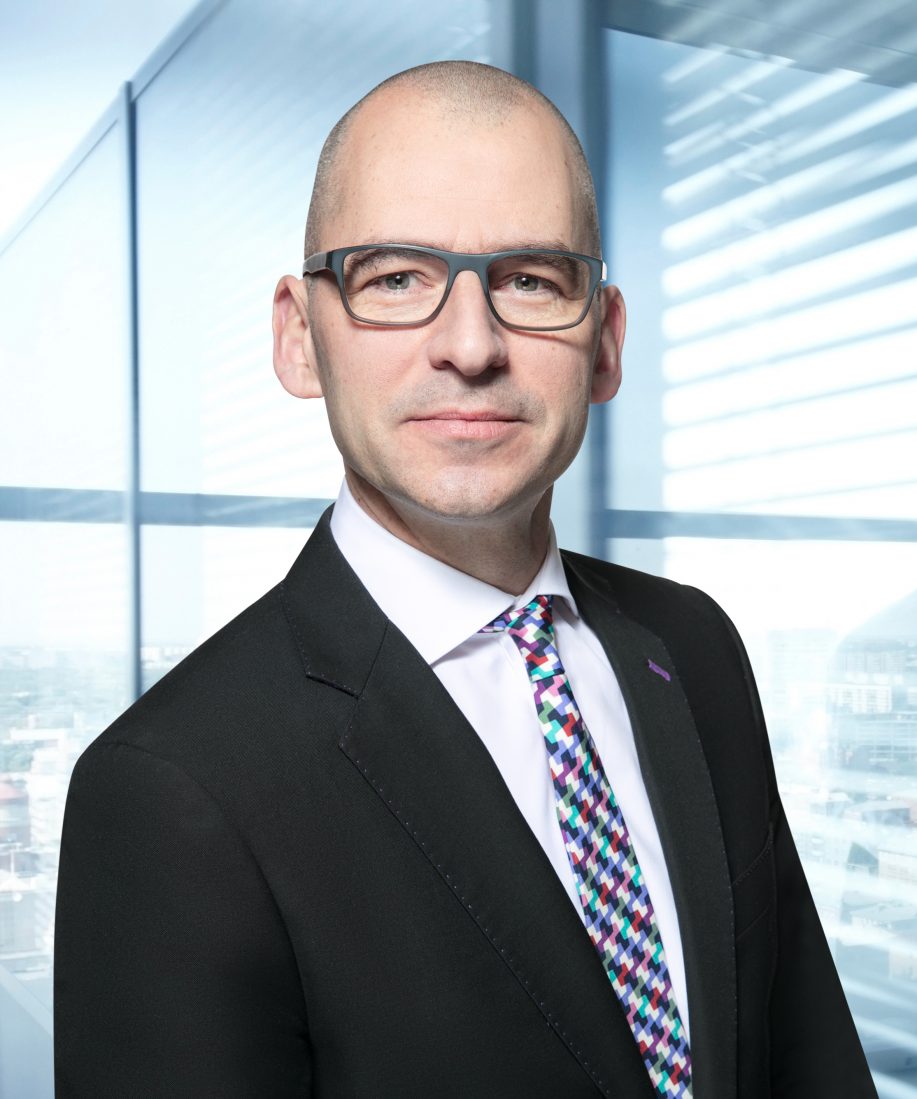
PROUT EMPLOYER Linklaters
“The advantage for our law firm is obvious: diverse teams are more multi-faceted, more creative and therefore more successful.”
Dr Sebastian Daub is a lawyer and partner at Linklaters in Frankfurt am Main. After his first state examination in law, his studies took him to Atlanta, where he obtained an LL.M before sitting the bar exam in New York. He then gained a doctorate (Dr jur.) and, after his legal internship, he joined Sullivan & Cromwell as an associate. Two years later, he moved to Linklaters in the same role, where he went on to become a managing associate at first, and then a partner. He specialises in private equity, M&A and joint ventures as well as corporate law.
Diversity has long been a topic at large law firms in English-speaking countries. How are your staff responding to the fact that the focus is now being placed on LGBTIQ?
Positively for the most part! Some colleagues question whether it’s actually still necessary to get involved in these issues. – If you’re a heterosexual man, it may be harder to see whether and in what form LGBTs are actually still battling against prejudice and perhaps discrimination or don’t dare to come out simply because they don’t know how their colleagues will react. To be honest, it has long been overdue that we offered a dedicated network for our German LGBT employees in addition to our successful “Ally” diversity programme and thus made another statement in support of openness and diversity. No one should feel that they have to hide their identity. And the advantage for our law firm is obvious: diverse teams are more multi-faceted, more creative and therefore more successful. Besides, in a presentation Jean-Luc recently gave to us, he quoted a study according to which the majority of LGBTs still hide their sexual orientation at work and about a quarter of their energy is wasted on building a construct for the outside world. This is alarming and at the same time encouraging. It’s encouraging because we can obviously further increase our productivity by creating an open environment. That’s a convincing argument even for people who are not affected.
We expect the PROUT EMPLOYER cooperation to give us new impetus and new ideas. As lawyers, we need our networks, and the cooperation creates another network and helps our LGBTs to be even more successful professionally.
What objectives are you pursuing with the PROUTEMPLOYER cooperation?
Although we have already set up an LGBT network, we see a lot of potential to expand our firm’s work to combat homophobia and transphobia and thus to further improve our corporate culture. We want to send a clear signal both internally and externally. We expect the PROUT EMPLOYER cooperation to give us new impetus and new ideas. As lawyers, we need our networks, and the cooperation creates another network and helps our LGBTs to be even more successful professionally. – And here again: it’s win-win!
What activities are there at Linklaters in terms of LGBTIQ diversity?
We have been championing diversity in our firm for many years. We’ve had established LGBT communities for a long time in London, New York, Tokyo and other locations of our law firm. In Germany, we also want to extend our network for our LGBT employees, which is still quite new there, and establish it as a platform on which colleagues can get updates on current topics, events, news, etc. or which they can simply use to share their experiences. This is particularly helpful for new colleagues who don’t yet know the environment. Interconnection within the Linklaters organisation is equally important. A good example is Hong Kong, where last year the commitment of our colleagues was awarded the Silver Standard of the LGBT+ Index by the Community Business organisation. This makes us the first and so far the only Magic Circle law firm to have been awarded the Silver Standard. That’s what I want to achieve in Germany, too.
You are the diversity sponsor at Linklaters. Why is it a matter close to your heart to support LGBTIQ people?
I have too many friends, even of my generation, who struggle with the issue of coming out and suffer from being different from what they pretend to be. In my view, the legal sector in particular still lags behind the rest of society here. However, each of us can fully develop our potential and talents only if we are accepted and valued by the people around us (both colleagues and clients). I try to play a small part in this through my contribution as diversity partner at Linklaters.
What do you think are the challenges with regard to LGBTIQ diversity in your firm in the coming years?
Our goal is to achieve a corporate culture in which sexual orientation is simply irrelevant because it doesn’t matter whether a colleague etc. is “straight” or LGBT. And “it doesn’t matter” doesn’t mean ignorance, but openness. In my view, the challenge here is to ensure that the discussion which we need for opening up these topics doesn’t cause a backlash from individuals.
